About Us
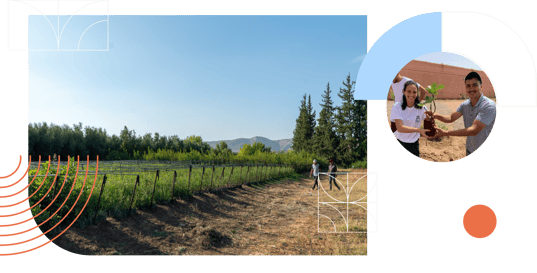
We believe that all people should have the agency, opportunities, and resources to work toward creating the future they want for themselves and with their communities.

We believe that all people should have the agency, opportunities, and resources to work toward creating the future they want for themselves and with their communities.
A Moroccan association and U.S. 501(c)(3) nonprofit organization, the High Atlas Foundation was founded in 2000 by former Peace Corps volunteers committed to furthering sustainable development in Morocco. Their love of the Moroccan people and culture, and local communities’ vast potential to generate shared prosperity, are driving forces behind our work.
By providing a structured pathway toward the implementation of Morocco’s vision for sustainable development, we are able to collaborate with government officials on the local, regional, and national level. Morocco is the ideal place for piloting programs that can be scaled and applied to broader contexts in the MENA region and beyond.
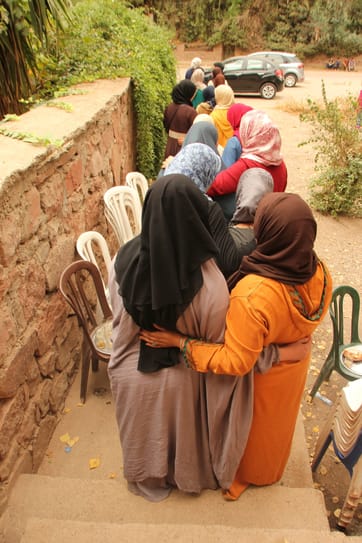
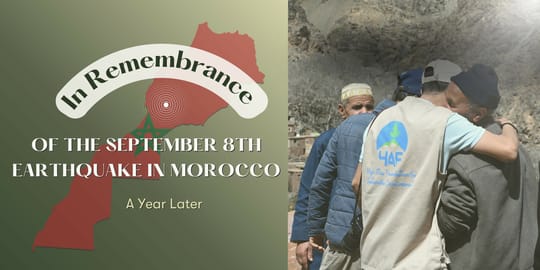
As the one-year anniversary of the September 8th earthquake nears, the High Atlas Foundation (HAF) alongside community partners will come together to honor the painful losses, the healing, and the collective rebuilding with one and all here in Morocco, and around the world.
We believe that all people should have the agency, opportunities, and resources to work toward creating the future they want for themselves and their communities.

We believe in the power of community-led sustainability projects to strengthen social ecosystems and unite people to create lasting prosperity for Morocco, the MENA region, and the world.

We place women’s empowerment at the center of our agricultural projects, supporting pathways to social and economic well-being.

We believe in the stability of nature-based solutions. In order to be truly sustainable, communities must take the lead to develop, maintain, and expand their success.

Our sustainable development projects begin with an invitation from the community — every time. We believe that communities are the experts on their unique context.

We believe in a human-centered partnership approach where communities take the lead on identifying, implementing, monitoring, and adapting sustainable solutions.

We honor and protect the cross-generational cultural heritage of the diverse groups we partner with and carefully merge tradition with innovative tools for continued community development.
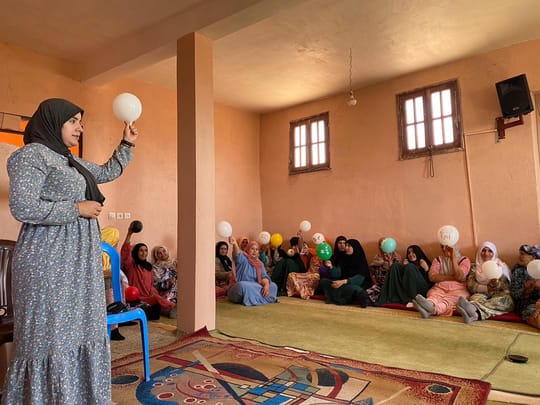
Get to know the dedicated group of people behind our programs.
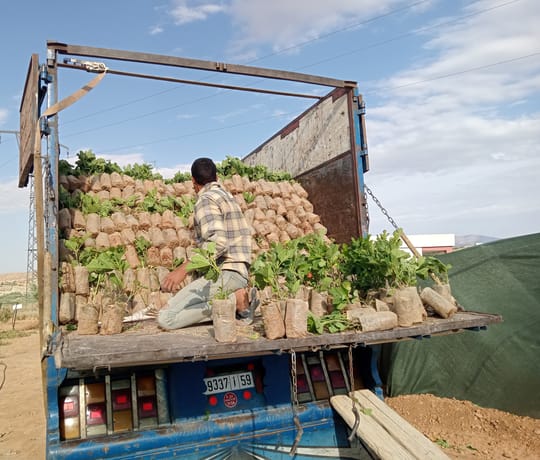
The High Atlas Foundation is founded by former Peace Corps Volunteers committed to furthering sustainable development and cultural preservation across Morocco.
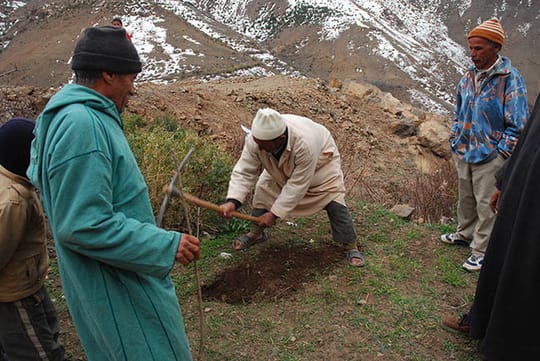
We plant 7,000 apple and cherry trees – our first tree distribution at this scale – in 10 rural communities in Marrakech Province. The project was supported by US Ambassador to Morocco Thomas Riley, USAID, Morocco’s Ministry of Waters and Forests, and the Marrakech 21 Foundation.
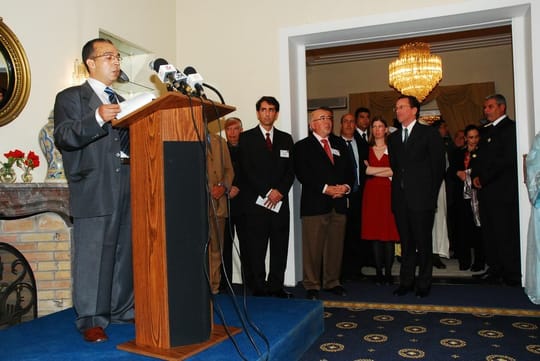
U.S. Ambassador to Morocco Thomas Riley and Mrs. Nancy Riley host a reception in Rabat, where we sign three landmark partnerships with the High Commission of Waters and Forests, the Office Chérifien des Phosphates (OCP), and Hassan II University-Mohammedia, significantly expanding capacity for sustainable development work.
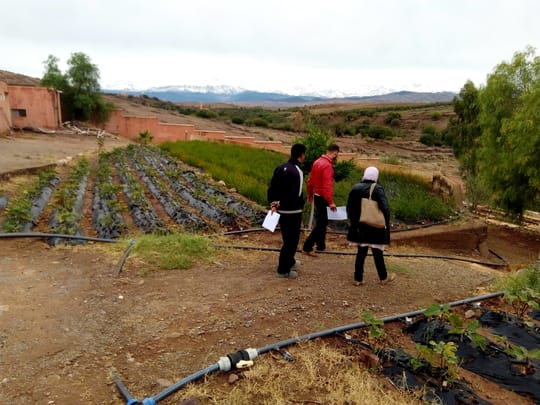
The House of Life project launches in Akrich, linking community development with cultural preservation and celebration through the establishment of community fruit tree nurseries on land adjacent to Moroccan Jewish cemeteries.
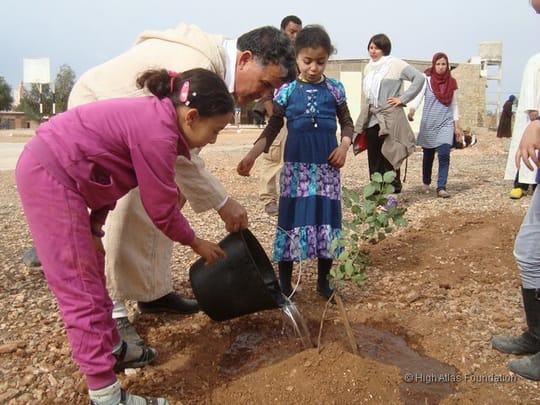
We reach one million trees planted as an organization at the close of the planting season. This achievement marks a significant milestone for the House of Life project and our ongoing partnerships with Moroccan farming families, cooperatives, and schools.
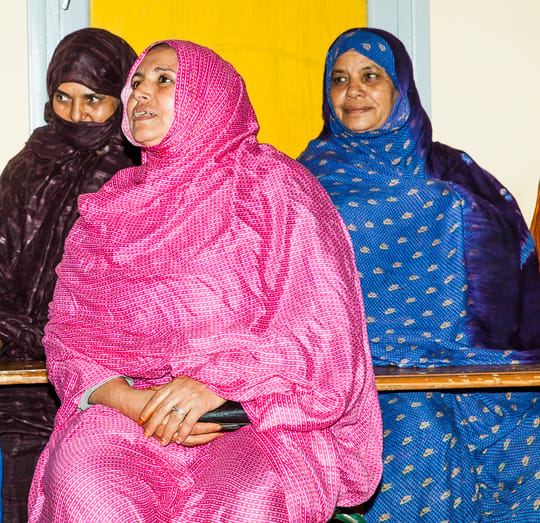
We assist in capacity building with rural cooperatives. The program engages underserved communities in the Beni Mellal, Fez, and Marrakech regions through legal aid, awareness-raising, and socio-economic integration while institutionalizing participatory governance in the Moroccan Sahara.
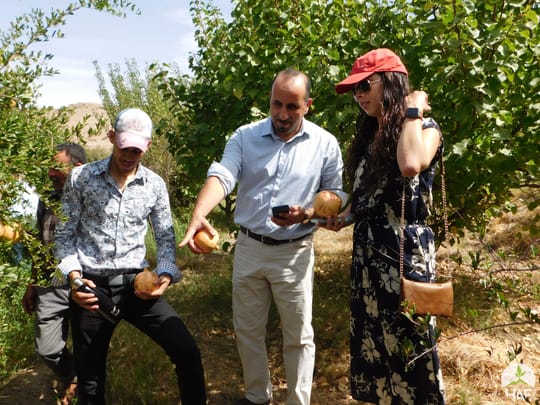
A 4-year partnership with the USAID Farmer-to-Farmer program launches, promoting sustainable economic growth, food security, and agricultural development with Moroccan communities. We train 620 people and provide free consulting to 75 host organizations – farmers, cooperatives, and small businesses.
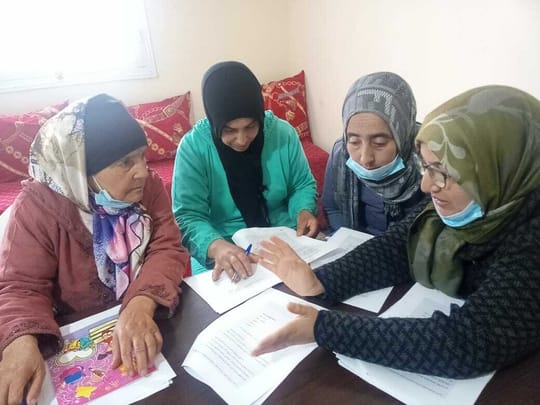
Family Literacy program in Marrakech-Safi and Beni Mellal-Khenifra launches. The project promotes literacy and numeracy skills for rural women and their children and provides a collaborative learning environment, awareness of legal rights, and expanded economic opportunity.
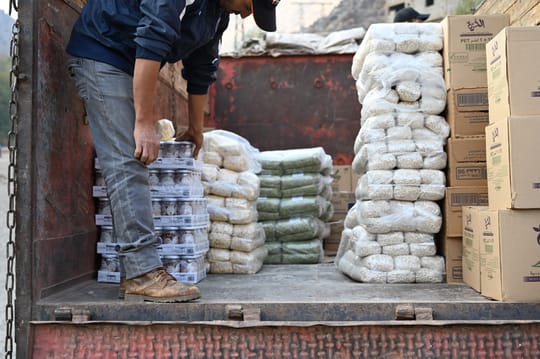
In the wake of the September earthquake, we develop a relief and rebuilding program in response to immense community needs. We distribute over 500 tons of supplies to nearly 70,000 people, provide psychosocial support, build intermediate shelters, and begin long-term water and agricultural infrastructure projects in the four months following the earthquake.
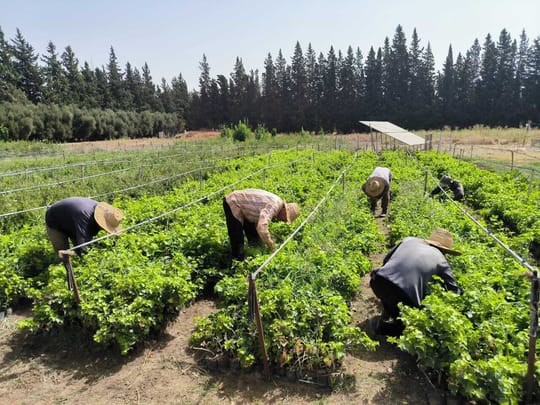
In 2024, the High Atlas Foundation planted 1,248,909 trees. These trees are thriving in 10 regions, 60 provinces, and 382 communes, improving the lives of 3654 farming families.
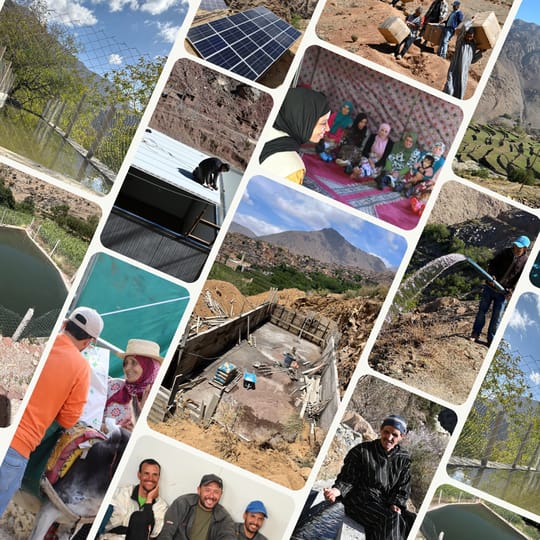
In 2024, the High Atlas Foundation has:
- Delivered 685 tons of essential aid.
- Built 10 irrigation basins and 8 water tanks.
- Repaired 37.5 KM of traditional irrigation canals.
- Installed 50.3 KM of pipes.
- Powered 5 wells with 124 solar panels.
- Provided 153 temporary homes to families.
Total impact: 91,347 people (15,387 families)